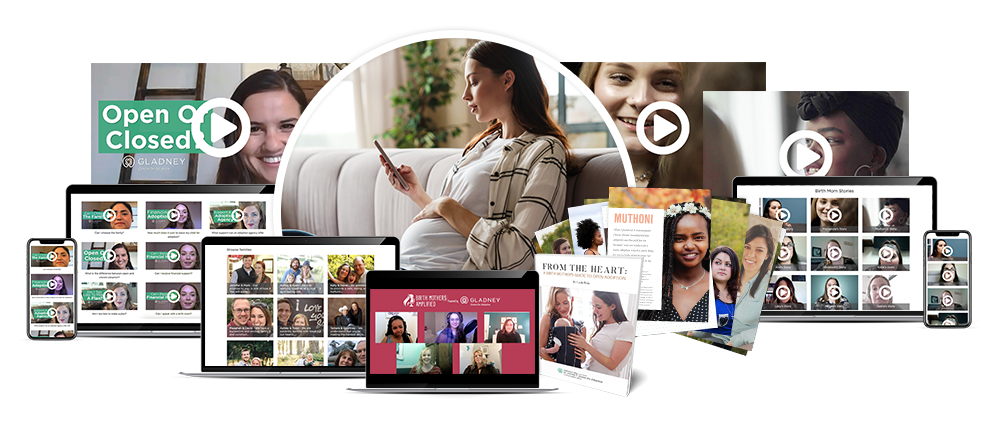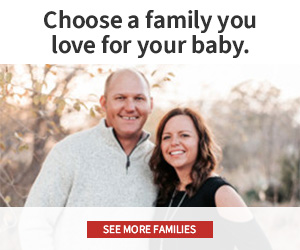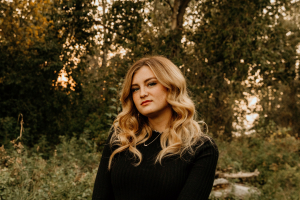What do supportive friends look like? This is something that I’ve thought about a lot in the last couple of years. I have become more observant of the influences and varying impacts on my life, and have had to take an inventory of what I want to allow in my space.
To begin, maybe it’s cliche, but I want to break down a couple of things with the help of the dictionary. According to the curators at dictionary.com,
A friend is:
- “a person attached to another by feelings of affection or personal regard.”
- “a person who gives assistance.”
- “a person who is on good terms with another; a person who is not hostile.”
Supportive means:
- “providing sympathy or encouragement:
I was always the type of person that was a friend to everyone to some extent. I took time to catalog facts and anecdotes shared with me, but the same courtesy was rarely shared. I had a few close friends, but more often than not, I felt like a secondary friend–someone that people would turn to if their first option was occupied.
I had one friend who I considered my best friend until relatively recently. For the sake of this article and her privacy, I will call her Claire.
Claire and I shared a lot of common interests when we were young, which fostered a good friendship to blossom in middle school. She was at my house often enough for her to garner the title, “the third adopted daughter” by my parents. (My sister and I are both adopted.)
She spent the night countless times, attended church meetings with my family for a number of years, went on family vacations with us, and the list goes on. As with any relationship, we had a handful of hiccups along the way, but we always found our way along.
As our time in high school ended, we both ended up at the same university. Our uber-connection furthered as we dated boys who were roommates our first semester. Those relationships both started and ended about the same time, and I started dating my now-husband shortly after.
My husband, Nick, expressed a lot of concerns to me that he had about Claire. There were things that I had always shrugged off. “That’s just how Claire is,” and “she’s like a sister to me,” were all excuses that I’d give, like putting a bandage over something that needed stitches.
I didn’t bat an eye when she made remarks like, “I can’t believe that I’m single and that you have a boyfriend.” I wrote that off with the acknowledgment that I had chosen not to date during high school, while she always had a boyfriend.
There were also snide remarks about my engagement coming before hers, and as you can imagine, about my marriage being months before hers.
Nick would get really tense and closed-off any time she came around, and would drag his feet any time we would go somewhere we knew she would be.
“I don’t like the way that she talks down to you.” He would say. “Every time you two are together, it’s just a competition about everything and anything she can think of.” Again, I would repeat the excuses I had used for years. “That’s just how Claire is.”
But then came the day that I realized that I didn’t owe her my friendship. She came over, and thus ensued our standard competitive banter. Things that shouldn’t be a competition became a competition by her need to win at everything. If someone dared to “one-up” her, she would become quiet and reserved, detached from the conversation.
“So, I guess the race is on to see who gets pregnant first!” The words rattled in my brain for a minute. She knew that I had been told at 15 that, due to some health concerns, getting pregnant was a big “if,” and if I got pregnant, it would likely be high risk, and I would also probably require infertility treatment.
At that moment, I heard my husband’s voice clear as day. There are some things that should not be made into a competition. Months later, I was able to get pregnant but lost that pregnancy within weeks.
I had asked to be kept in her thoughts when I knew that I wouldn’t be able to keep the pregnancy, and I distinctly remember an undertone of irritation at me. I had gotten pregnant first, and she was clearly unhappy that I had beaten her at that race to pregnancy. A month after my loss, she video-called me. There were the preliminary “how’s it going?” and “how was your Thanksgiving?” niceties, to which I was open and forward about my lingering struggles with the miscarriage.
“I’ll keep you in my prayers! But guess what I found out this morning…” And then she panned the camera down to her shirt which had a vinyl gift over her tummy, with the caption “the best gift ever!”
“I’m pregnant!” She exclaimed with an enthusiasm that was unparalleled to anything you could imagine.
I said something congratulatory, and she delved into every detail about every symptom she was feeling, how she found out, how she told her husband, etc. She wasn’t going to tell her mom for another month, but just thought I should know.
I was completely flabbergasted by that last part. She thought I should know before her mom? She listened to me express my sadness and pain of my miscarriage and felt like I needed to know before her own mom knew? She continued explaining a week-by-week synopsis of symptoms, sparing no detail and ignoring the fact that I had recently experienced the symptoms that she now felt some kind of ownership over.
My husband had overheard the whole conversation, and as soon as we hung up, he expressed his irritation at her lack of mindfulness toward me. However, he also explained that he wasn’t surprised at all. After all, “that’s just how Claire is.”
As cliche as it may sound, my husband is my best friend. When people say that the first year of marriage is the hardest, oh man, that is so true. But I realized shortly after our one-year mark that a lot of our hardships were brought on by my over-analyzing and my projections of past interactions onto him. I was used to my “best friend” being vindictive and manipulative, so I assumed that he would be the same way.
My sweet husband, who is kind and caring, was painted in my mind as a villainous character. I had a sudden realization though that he was truly a wonderful person, and I was incredibly fortunate to have him in my life. With that change of perspective, I started being a lot kinder to him. I took down the wall I had put up to prevent him from getting too close, and I stopped accusing him of things that he never had and never would say or do.
Nick is the kind of person that shares his triumphs with you, not because he’s trying to belittle your accomplishments, but because he genuinely wants to share his joy with you. He listens to your struggles and blunders and offers advice when you want it, and a shoulder to cry on when words won’t help.
In my adoption journey, I have learned to think of my birth parents as some of my best friends and greatest advocates. But that doesn’t mean that there weren’t bumps and bruises on the road to get here. Lines were crossed, and things were taken out of context. But, because love and respect were at the root of our relationship, we worked together to set boundaries and expectations.
Supportive friends take each other’s needs and experiences into consideration and have a desire to uplift and edify, not to degrade and demean.
Pregnant and considering adoption?
Get your free adoption benefits and support bundle

I consider my birth father’s wife to be one of my best friends. Mary Kate is always there for me and reinforces our relationship verbally and in how she interacts with me. After my first miscarriage, she came to visit. We watched movies, ate junk food, and whatever else she could think of to give me a change of pace. She shared her experience of miscarrying twins years before. Mary Kate being there meant a lot to me.
Just before the miscarriage, my parents moved across the country. Instead of being an eight-hour car ride away, they were now far enough that it would be days in the car or a flight to get there. My mom couldn’t get to me, and I felt so alone. Even though my husband was with me, he was grieving in his own way.
Just five months later, my husband and I went in for a ten-week ultrasound. We were informed that our little baby no longer had a heartbeat.
We called our family when we got home. We called my mom, then my husband’s family, and then Mary Kate. Without missing a single beat, she asked, “Do you want me to come?”
I said no, I didn’t want to inconvenience her. To which she promptly responded, “I’m coming. Let me just take care of a couple of errands, and I will be on my way.” We lived about four hours from her, and true to her word, she was there five hours later.
I’ll spare you all the details of that next week, but to give you a gist… I had two D&C’s in one week, our lease ended on our apartment because we had planned on moving, and we were instructed to postpone our move for at least a week by the doctors who had immediate concerns for my safety and well-being.
Mary Kate and Nick worked together to finish packing up our apartment while I was bedridden with grief and physical healing from the operations and miscarriage and helped us secure a hotel to stay at when we had to be out of our apartment for the new tenants move in.
My older sister also surrendered her own plans for a couple days that week and flew up to stay with us. She helped get our packing started and made sure that we had plenty to eat amid the chaos that had become our lives. She even went as far as to do her own research on my healing and to call the doctor on my behalf when she had concerns. (That turned out to be the cause of my lengthened healing time.)
My sister, Katelyn, has always been one of my most supportive friends. She has always laughed at my jokes even if they weren’t that funny and taught me to play guitar (which led me to now be a musician.)
That week was hands-down one of the most stressful times in my life, and I honestly don’t remember much. However, I do remember the support of my friends that dropped their plans to be there for me and my husband. Mary Kate, Katelyn, and friends from our church congregation came to help us load up furniture to take to the thrift store and to clean our apartment.
There were times that I felt almost embarrassed by my inability to fend for myself. I couldn’t keep any food down, and I couldn’t stand without experiencing severe vertigo. But it was the constant support of my true best friends that allowed me to hunker down and take care of myself while I healed and helped me to know that there was nothing for me to be embarrassed by.
So, to answer the question, “what do supportive friends look like?” Supportive friends are there for you! Supportive friends allow you to be your truest self and advocate for you. Supportive friends allow you to support them as well.
Whether you are needing support with a decision on where or if to go to college, support with your expression of sexual orientation or identity, support in a career or other endeavor, or anything at all, I hope that you are able to find people that are truly supportive friends. Don’t settle for friends that are only there for you when it’s convenient for them. You deserve more than that.


